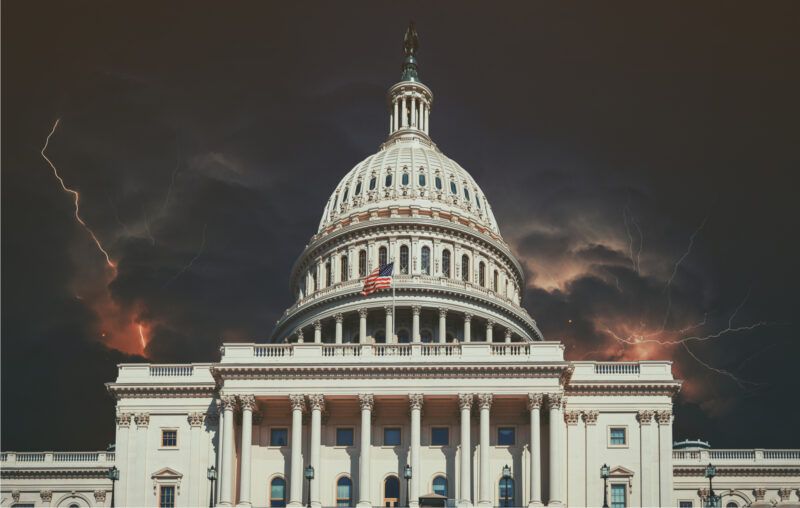Reaping What Big Government Sowed

“Whatsoever a man soweth, that shall he also reap.” — Galatians 6:7, King James Version
In an earlier article, I explained that the euthanasia of America’s proprietor class did not bode well for political moderation this election cycle and so far extremism has indeed carried the conversation.
Since then, I’ve been musing about why “Big Business” did not clamor for a quick end to lockdowns and “mostly peaceful” protests. Indubitably, some big corporations benefited from bailouts and being labelled “essential” businesses. Some think Democrats will give them even more cash. A few probably relished the opportunity to blame the Covid catastrophe for “restructurings” that would have been necessary sooner or later anyway.
But something else must be going on for corporations to donate so much to Black Lives Matter and Goldman Sachs to endorse Joe Biden on economic grounds. A facile analysis would suggest that they simply think Biden will win and want to be on the right side of the administration and of “history.” But investment bankers and other top corporate executives did not reach the top by placing simplistic bets they could lose. What they must have calculated is that the probability of Biden winning and persecuting them for being on the wrong side is greater than the probability of Trump winning and persecuting them.
This thought struck me while reading one of Milton Friedman’s lesser-known productions, “The Fragility of Freedom,” [Brigham Young University Studies 16, 4 (Summer 1976): 561-74:], which he presented at Brigham Young University as a double bicentennial talk about the relationship between the United States and Adam Smith’s Wealth of Nations. Old Milt was trying to figure out why big businesses put up with New York City’s disastrous fiscal policies and, more broadly, why they did not criticize obviously dumb government policies like President Ford’s silly WIN (Whip Inflation Now) program.
Given what has happened (and not happened) this year, his analysis is prescient:
“If you were a businessman at the head of a great corporation you would think three times before you spoke out on a major issue. You would look over your left shoulder and see the IRS getting ready to come and audit your accounts and you would look over your right shoulder and see the Department of Justice standing only too ready to launch an antitrust suit against you. And then, if you had more shoulders than two, you would ask what is the FTC going to do about my advertising; and what is the FDA going to do about the products I produce; and what is the Safety Council going to do about this, that and the other thing? You are not free to speak if you are in that position” (p. 566 ). [Emphases added.]
Talk to any Left-leaning person, as I often have to do (an occupational hazard of being a college professor in 21st Century America), and you’ll learn that they assume that big businesses run the country until the masses can be stirred to oppose them. That might have made sense when Karl Marx’s spectre still roamed the earth and US X, General Y, and Standard Z appeared an even match for Uncle Sam. But what company today does not know that Washington can crush it, if not for breaking Law A, then for running afoul of Regulation B, or tax provision C, D, E, or F?
Both major parties have evinced the right to use the power of the state to punish political opponents. The difference is that a victorious (or lame duck) Trump, an economic nationalist if nothing else, would be much more likely to use the federal government’s power to go after foreign corporations, like Huawei and TikTok, than to poison Wall Street or Silicon Valley for his children by taking revenge on Big Banks or Big Tech. The Obama-Biden administration, by contrast, used federal bureaucracies to thwart domestic nonprofits that espoused “dangerous” views, like the virtues of slowing the growth of the national debt (the nerve of the Tea Party!), and a President Biden will not likely be any less vindictive.
Then Friedman’s little talk turned from prescient to eerily prescient and very relevant to the Great Barrington Declaration:
“I ask myself whether the professors who teach medicine at any medical school in this country, most of whose research is being financed by the National Institutes of Health, whether they are really free to speak out against socialized medicine and against further involvement of the government in medicine. Some of them obviously will. But is there the slightest doubt, to use the famous words of the Supreme Court, that their dependence for the major source of their financing on the Federal Government has a ‘chilling effect’ on the freedom of speech?” (pp. 566-67). [Emphasis added.]
Note that Friedman is not making the silly argument, all too popular these days, that every X that gets some $ from Y will be beholden to Y. He is arguing that the government provides such a large percentage of the funding of medical scientists that most of them will not speak out against it because it holds, in the parlance of Adam Smith’s day, “the power of the purse.” In addition to withholding future funding, Uncle Sam could also unleash its regulatory and tax minions on any medical scientist daft enough to defy him.
So why have only a few score scientists spoken out about the irrationality of Covid lockdown policies? Friedman explains that too!: “About the only people who now have full freedom of speech are people in the fortunate position I am in — a tenured professor at a major institution on the verge of retirement” (p. 567). Note that almost all of the most vocal scientific critics of lockdowns are senior professors at big universities, or already retired!
(Other major sources of opposition, like the AIER and Reason, are independent nonprofit organizations established long ago and funded from pots of dead donor money and numerous small ongoing donations, none of which is big enough to influence editorial policy one iota. Such organizations sell Truth as they see it and if you want to pitch in, that is great, but your donation will not buy you a say in what they say.)
Friedman then warns his university audience that universities will reap as they sowed, accurately predicting that they will be ruled from Washington soon enough, and will deserve it because they “have been in the forefront in persuading the public at large that the doctrine of individual responsibility is a false doctrine; that the source of all good things is Big Brother in Washington” (p. 567).
Well, Big Brother is here, along with doublethink, thoughtcrime, unpersons, 2+2 = 5, and newspeak/doublespeak. A quick visit to the local supermarket and Twitter will provide ample evidence that 2020 is actually 1984. What remains to be seen is if all of us Winstons will profess our love of Big Brother in the end or if our dystopian year ends in a Brave New World or at Fahrenheit 451.
But maybe our tribulations will induce us to reap the seeds that Friedman sowed in 1976 and embrace his full-throated vision of Public Choice theory? “The fundamental difference between the political market and the economic market,” he explained, “is that in the political market there is very little relation between what you vote for and what you get. In the economic market you get what you vote for” (p. 569).
Future generations, if there are any, will look back at 2020 and wonder why anyone thought themselves a member of a “democratic society” simply because they could cast a ballot every now and again. The people (demos) do not rule, self-interested government officials do. Big government, Friedman understood, is inherently authoritarian because it dictates how two of every five dollars of economic value is spent. Only by returning to limited government, voluntary association, and self-reliance can Americans reject this dystopian year and return to, not utopia, but happiness, which the nation’s Founders understood as prosperity mixed promiscuously with liberty.











